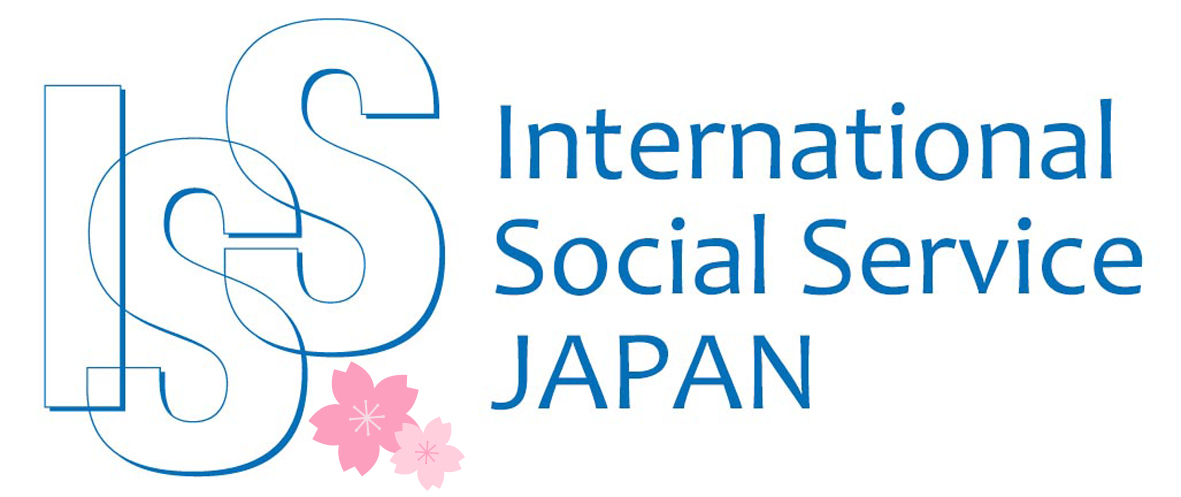Beginning of ISSJ
ISSJ provides social work (consultation support) to families, mainly children, through adoption and support for immigrants living in Japan. ISSJ’s wide range of projects is based on the changes in society from its establishment to the present and the practices of its social workers in response to these changes.
Occupied Japan and Postwar “Mixed-Race Children”
The predecessor of ISSJ was the American Joint Committee for Assisting Japanese-American Orphans (hereafter referred to as “the Committee”), which was established in 1952. This was a voluntary organization made up of Japanese, American, and Canadian volunteers that supported international adoptions with the aim of rescuing children born to Japanese women and soldiers stationed in Japan after World War II.
There is no accurate record of the committee’s beginnings; some say it began in 1945. However, there were many changes in “1952”. This was the year that the Treaty of San Francisco came into effect, the Allied occupation ended, and it was also the year that the so-called “mixed-race children” born to Japanese women and soldiers stationed in Japan after the war began to reach school age, and their presence became apparent.
In response to the unprecedented situation, the government conducted a fact-finding investigation, which was followed by a debate in the Diet. Meanwhile, the Committee continued to help find new homes for children through adoption and to assist the remaining women in Japan to travel to the United States to reunite with their American husbands.
With the passage of the Refugee Relief Act in the United States in 1953, orphans adopted by Americans and orphans in the process of adoption were allowed to enter the United States, and international adoptions from Japan to the United States became more active. Records passed down from the Committee to the ISSJ indicate that there were 785 international adoptions by the Committee during the three-years from 1952 to 1954.
The Japanese branch of ISS
In supporting international adoptions, the Committee became acutely aware of the need for expert knowledge. That is social work. Having many networks abroad, the Committee contacted the Geneva-based International Social Service (ISS) and began a business partnership in 1955.
This has made it possible to invite experts from ISS to practice training. Committee staff had the opportunity to learn firsthand about Western social work and began to practice it in adoptions, passing their skills on to future generations.
The committee continued its work as the ISS Japan Representative Office, and in 1959 it was chartered as the Japan International Social Services Corporation, a social welfare corporation, and at the same time became the official ISS Japan Branch.
History
| 1952 | Began assisting orphans from World War II and racially mixed children after the inauguration of the Japan-America Joint Committee for the Assistance of Orphans. |
| 1955 | Began social work on an international level after joining the International Social Service headquartered in Geneva, Switzerland. |
| 1958 | Established Okinawa Branch |
| 1959 | International Social Services Japan was accredited by the Ministry of Health and Welfare as a social services welfare agency. |
| 1960 | Established the ISSJ Kure branch in Hiroshima to provide care for racially mixed children |
| 1973 | ISS Asia Oceania Conference was held in Japan hosted by ISSJ |
| 1974 | Hosted the first orientation for prospective adoptive parents, a program that continues to this day. |
| 1975 | Received the Imperial Donation from the Emperor for contribution of helping mixed racial children. |
| 1979 | Began refugee assistance under the auspices of the UNHCR (United Nations High Commissioner for Refugees) |
| 1980 | ISSJ started the charity movie event |
| 1982 | Established the Integration Counseling Program for Indo-China Refugees. Began counseling services for refugees who completed the Refugee Assistance Center Program. |
| 1991 | Began training international social workers (Since then, invited trainees from Philippies and Cambodia. Sent social workers to Cambodia, Thailand, Vietnam, Philippines and China) |
| 1994 | Entered into a contract with the Philippines Department of Social Welfare and Development to improve welfare support for international children of Philippines origin |
| 1995 | Implemented the Vietnamese Aid for Medical Care program |
| 1996 | Began a training program in Cambodia. Opened the Phteah NyoNyum Day Care Center in Cambodia Started the ISSJ Kure International Exchange Association. |
| 1998 | Published “Caring Hands Across National Boundaries” for commemoration of 45 years of ISSJ |
| 2002 | Hosted “ISS Asia Pacific Regional Meeting” Published “History of ISSJ 1952-2002” in commemoration of the 50th anniversary of ISSJ |
| 2004 | Entered into a contract with the Philippines Intercountry Adoption Board |
| 2008 | Held a conference on Intercountry Adoption and the Hague Convention |
| 2009 | Closed ISSJ Kure Office |
| 2013 | “The History of ISSJ Since 1952” was published in English |
| 2014 | Began implementing The Hague Convention on the Civil Aspects of International Child Abduction into its programs |

